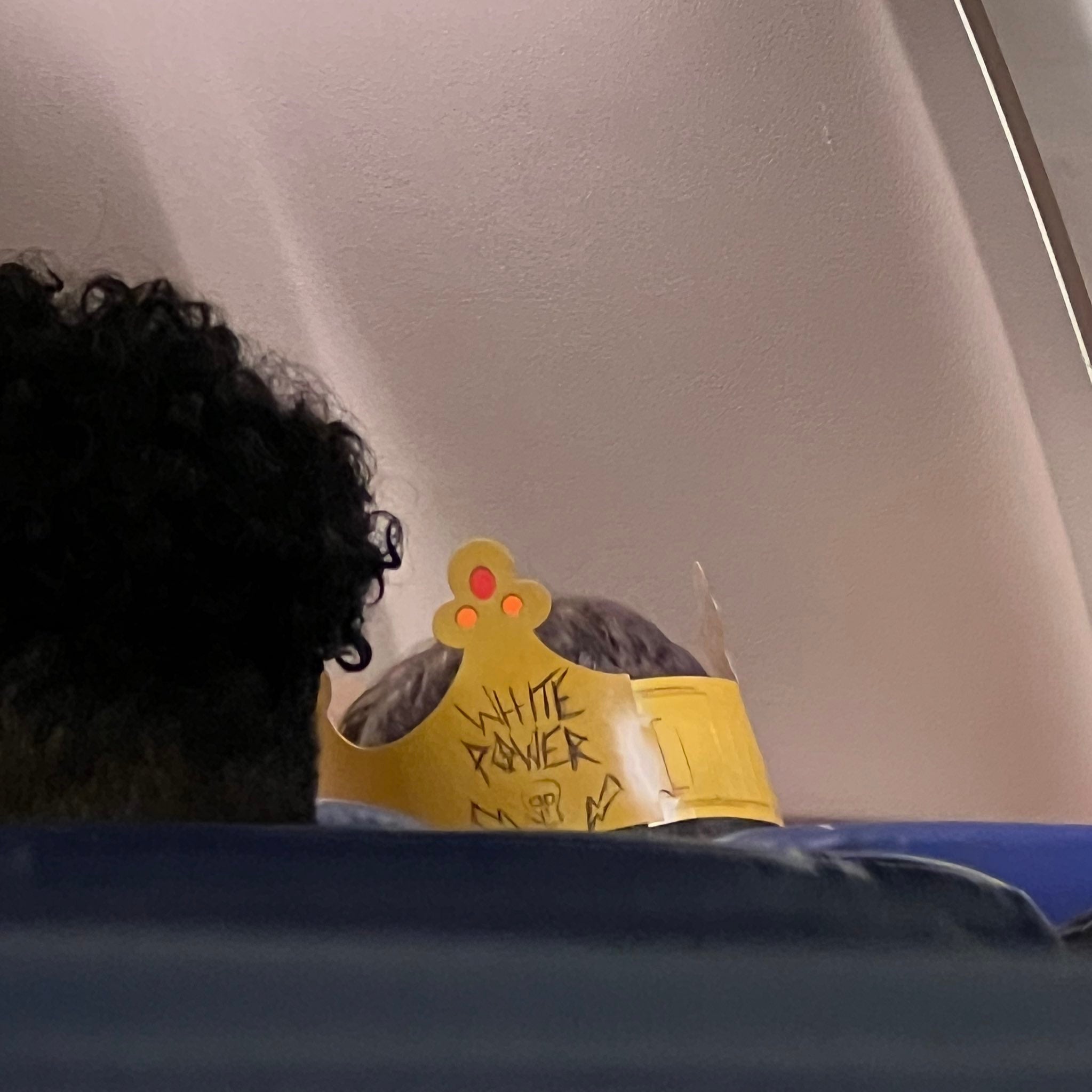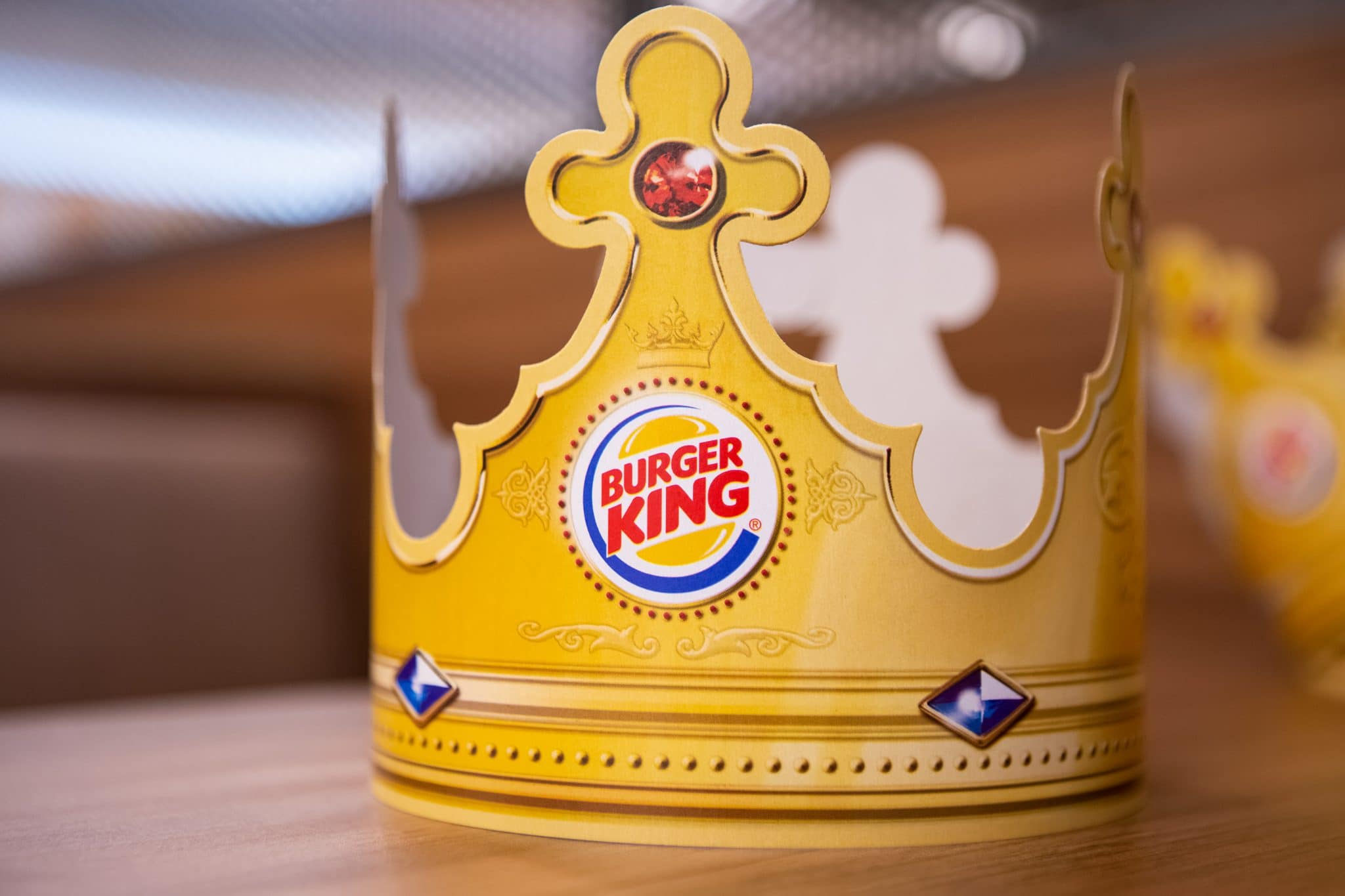Burger King Crown Controversy: Is It Racist Or Just A Marketing Stunt?
Let’s cut straight to the chase, folks. The Burger King Crown has sparked a massive debate online, with people questioning whether it’s a harmless marketing gimmick or a deeply racist move. If you’ve been scrolling through social media, you’ve probably seen the viral outrage over this golden crown that’s got everyone talking. But is it really as bad as people are making it out to be?
The Burger King Crown is not just a piece of fast-food flair; it’s a symbol that’s been thrust into the center of a heated cultural discussion. Some see it as a bold move by one of the biggest fast-food chains, while others view it as a tone-deaf gesture that misses the mark on cultural sensitivity. The truth? It’s a lot more complicated than a simple yes or no answer.
Before we dive deep into the controversy, let’s take a moment to understand why this matters. Food marketing isn’t just about selling burgers anymore; it’s about shaping perceptions, connecting with communities, and sometimes, toeing the line between clever and offensive. So, is the Burger King Crown racist? Or is it just another example of a brand trying too hard to stay relevant? Let’s find out.
Table of Contents
- Background: What’s the Deal with the Burger King Crown?
- Origins of the Crown: Where Did It Come From?
- The Cultural Impact: Why Are People Upset?
- Is It Racist? Breaking Down the Allegations
- The Marketing Strategy Behind the Crown
- Consumer Reaction: What Are People Saying?
- What Do Experts Say?
- Historical Context: Racial Symbolism in Advertising
- Moving Forward: Lessons Learned
- Conclusion: Is the Burger King Crown Racist?
Background: What’s the Deal with the Burger King Crown?
Alright, let’s break it down. The Burger King Crown isn’t just some random accessory they threw together. It’s part of a larger campaign aimed at promoting their Whopper Sandwich. The idea is simple: wear the crown, and you’re the king of your meal. Sounds fun, right? But here’s the twist—some people think the design and execution of the crown are racially insensitive.
Now, the crown itself is golden, shiny, and designed to look like something a king would wear. But critics argue that its shape and style resemble certain cultural symbols that have been historically tied to racial stereotypes. This has led to a wave of backlash, with many calling out Burger King for being tone-deaf at best and outright racist at worst.
Origins of the Crown: Where Did It Come From?
Let’s rewind a bit. Burger King didn’t just pull this idea out of thin air. The crown has been part of their branding for years. It’s a nod to their slogan, “Have it Your Way,” and the idea that when you order from Burger King, you’re the king of your own meal. But the latest iteration of the crown, introduced in 2023, is what sparked the controversy.
Why Did They Change It?
According to Burger King, the updated crown was designed to appeal to a younger, more tech-savvy audience. They wanted to create a buzzworthy campaign that would resonate on social media. And let’s be honest, nothing generates buzz quite like controversy. But did they go too far? That’s the million-dollar question.
The Cultural Impact: Why Are People Upset?
Here’s the thing about cultural impact—it’s not always black and white. Some people see the crown as a harmless marketing tool, while others view it as a symbol of racial insensitivity. Critics argue that the crown’s design resembles certain traditional African headpieces, which have been historically appropriated and misrepresented in Western media.
For many, the issue isn’t just about the crown itself—it’s about the broader context of cultural appropriation in advertising. Brands often borrow from cultures without giving credit or showing respect, and that’s where the problem lies. When a company as big as Burger King gets it wrong, it can have far-reaching consequences.
Is It Racist? Breaking Down the Allegations
So, is the Burger King Crown racist? That’s the question everyone’s asking. On one hand, Burger King insists that the crown was never intended to offend anyone. They claim it’s just a fun, lighthearted marketing tool designed to engage customers. On the other hand, critics argue that intent doesn’t matter when the impact is harmful.
- Design Concerns: The crown’s shape and style are similar to traditional African headpieces, which some people see as a form of cultural appropriation.
- Historical Context: Racial stereotypes have been used in advertising for decades, and many people feel that Burger King is perpetuating those same stereotypes with this campaign.
- Cultural Sensitivity: Critics argue that Burger King failed to consult with cultural experts or consider the potential impact of their campaign on marginalized communities.
The Marketing Strategy Behind the Crown
Now, let’s talk about the marketing strategy. Burger King is no stranger to controversial campaigns. In the past, they’ve pushed the boundaries with ads that have sparked both praise and criticism. The crown campaign is just the latest in a long line of bold moves aimed at grabbing attention.
Why Take the Risk?
Brands often take risks because they know that controversy generates buzz. And buzz equals sales. But there’s a fine line between being edgy and being offensive. Burger King may have crossed that line with the crown campaign, but it’s hard to deny that they’ve succeeded in getting people talking.
Consumer Reaction: What Are People Saying?
The consumer reaction has been mixed, to say the least. Some people are defending Burger King, arguing that the crown is just a fun way to promote their products. Others are calling for a boycott, claiming that the campaign is disrespectful and offensive. Social media has been ablaze with debates, memes, and opinions from all sides of the spectrum.
Key Points from the Conversation
- Supporters say the crown is just a playful marketing tool and that people are overreacting.
- Opponents argue that cultural sensitivity should be a priority for major brands and that Burger King missed the mark.
- Many consumers are calling for accountability and urging Burger King to address the concerns raised by critics.
What Do Experts Say?
Experts in marketing and cultural studies have weighed in on the controversy, offering insights into why the crown campaign has sparked such a strong reaction. Dr. Maria Johnson, a professor of cultural studies, says that the issue goes beyond just the crown’s design. “It’s about the larger pattern of cultural appropriation in advertising,” she explains. “Brands need to be more mindful of the impact their campaigns have on marginalized communities.”
Marketing consultant John Smith adds that while controversy can be a double-edged sword, it’s important for brands to listen to feedback and make adjustments when necessary. “Burger King may have intended to create a fun campaign, but they need to acknowledge the concerns raised by their customers,” he says.
Historical Context: Racial Symbolism in Advertising
To fully understand the controversy surrounding the Burger King Crown, it’s important to look at the historical context of racial symbolism in advertising. For decades, brands have used racial stereotypes to sell products, often without considering the impact on the communities they represent. From Aunt Jemima to Uncle Ben, there’s a long history of problematic advertising that has left a lasting legacy.
Today, consumers are more aware and more vocal about these issues. They expect brands to be culturally sensitive and to take responsibility for their actions. The Burger King Crown controversy is just the latest example of how brands can get it wrong when they fail to consider the broader cultural implications of their campaigns.
Moving Forward: Lessons Learned
So, what can Burger King and other brands learn from this controversy? First and foremost, they need to prioritize cultural sensitivity in their marketing efforts. Consulting with experts and community leaders can help ensure that campaigns don’t inadvertently offend or alienate certain groups.
Additionally, brands need to be prepared to listen to feedback and make changes when necessary. Ignoring criticism or doubling down on a problematic campaign can do more harm than good. In the case of the Burger King Crown, the company has an opportunity to turn this controversy into a learning experience and a chance to build trust with their customers.
Conclusion: Is the Burger King Crown Racist?
At the end of the day, whether or not the Burger King Crown is racist is a matter of perspective. Some people see it as a harmless marketing tool, while others view it as a symbol of cultural insensitivity. What’s clear is that the controversy highlights the importance of cultural awareness in advertising.
As consumers, we have the power to hold brands accountable and demand better. Whether you choose to support Burger King or join the boycott, your voice matters. So, what do you think? Is the Burger King Crown racist, or is it just another example of a brand trying too hard to stay relevant? Let us know in the comments below, and don’t forget to share this article with your friends!



Detail Author:
- Name : Ceasar Eichmann DDS
- Username : jonathon98
- Email : scrona@dickens.com
- Birthdate : 1999-12-15
- Address : 6779 Tillman Green Johnsonfort, TN 53294-8362
- Phone : +1.732.946.7068
- Company : Wolf, Hansen and Stehr
- Job : Electrical Sales Representative
- Bio : Nisi maxime vel nihil sequi impedit accusantium. Qui porro illum magni eaque recusandae recusandae laboriosam. Vel amet ut ea sit optio tempora. Rerum nemo est repudiandae minus et at.
Socials
twitter:
- url : https://twitter.com/marmstrong
- username : marmstrong
- bio : Ut dolore nobis sit facilis molestiae harum est. Dicta rerum sunt quo. Veritatis blanditiis ea velit ut nihil. Debitis eos est porro.
- followers : 1412
- following : 954
linkedin:
- url : https://linkedin.com/in/marmstrong
- username : marmstrong
- bio : Suscipit et nihil qui reprehenderit.
- followers : 669
- following : 1564
instagram:
- url : https://instagram.com/michele_armstrong
- username : michele_armstrong
- bio : Amet velit omnis doloremque molestiae consectetur ad. Ut soluta corrupti pariatur provident.
- followers : 2504
- following : 2612